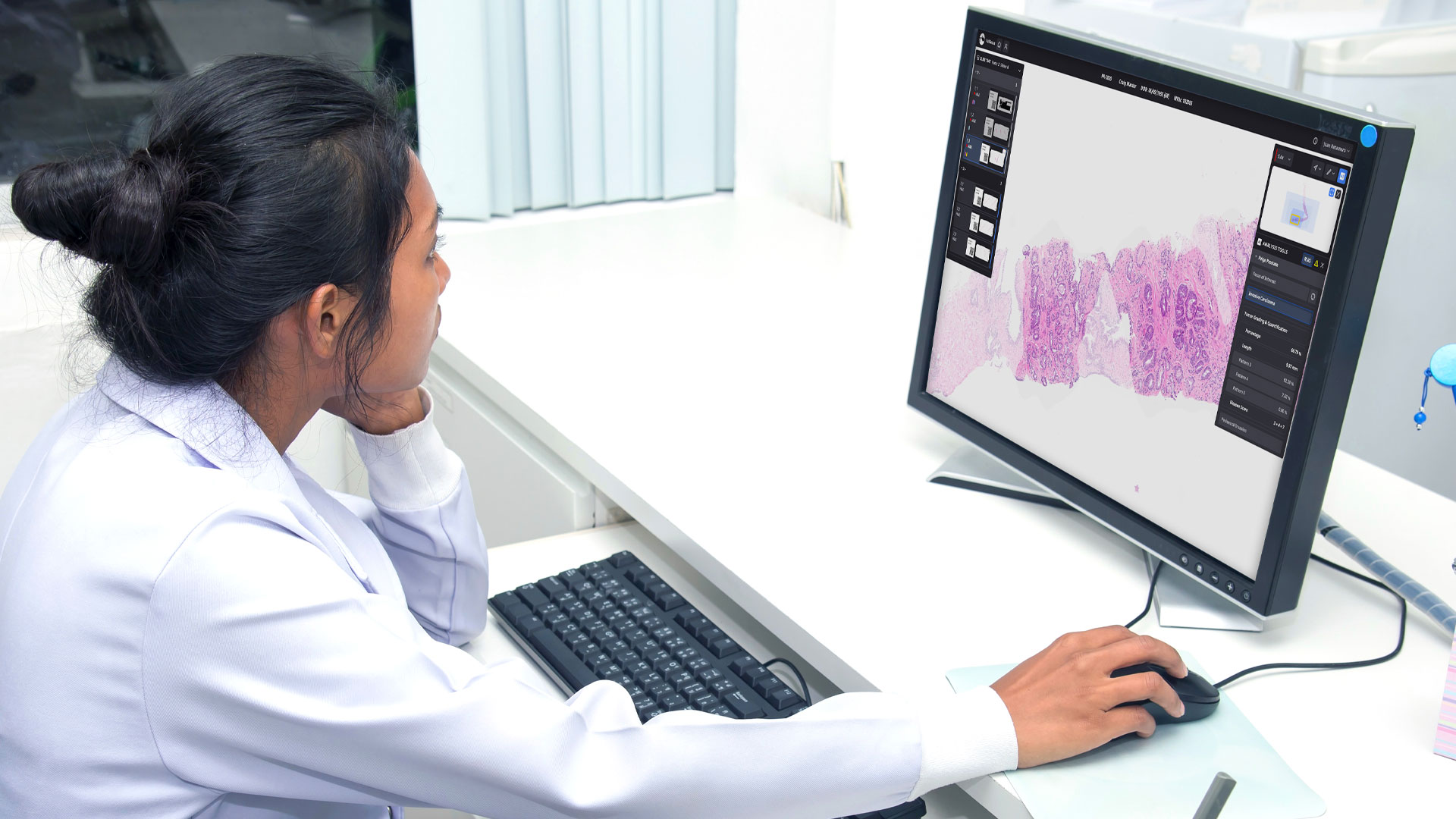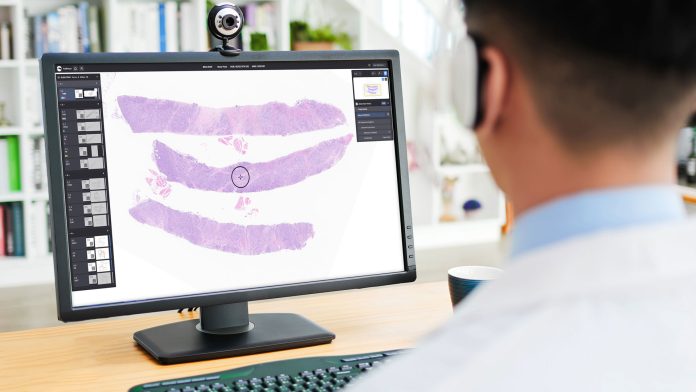AI-powered pathology presents the NHS with a unique opportunity to enhance cancer detection. Paige AI explains how its tools can facilitate quicker diagnostics and improve cost efficiency within the UK’s health system
The UK faces a 5% annual rise in cancer diagnoses, (1) placing increasing strain on the NHS. Prostate cancer, responsible for over 51,900 new cases in 2023, (2) is a major contributor. Screening programs designed to reduce mortality (3) have led to approximately 100,000 prostate biopsies annually, (4) further burdening hospitals and pathology labs.
Currently, pathologists manually assess prostate biopsies under a microscope—a decades-old process that is time-consuming and prone to errors. Human interpretation misses up to 3.3% of cancers, (5,6) potentially resulting in 2,000–3,000 false-negative diagnoses each year in the UK alone. Artificial intelligence (AI) and digital pathology present a transformative solution to these challenges.
AI a game-changer for prostate cancer diagnosis
AI tools, like Paige Prostate, can improve speed, confidence, and cost-effectiveness. (7-11) By analysing digital pathology images, Paige Prostate detects subtle cancer patterns that may escape human observation. Trained on tens of thousands of biopsy images, it delivers consistent, reliable results and helps pathologists identify prostate cancer more efficiently, including cancers that might have been missed. (7-11)
Clinical studies (7-11) demonstrate that Paige Prostate reduces diagnostic time by up to 65%, improves small cancer detection, and decreases costs. In one study, (7) AI identified cancer in 3% of cases initially overlooked by pathologists. Crucially, Paige Prostate complements rather than replaces pathologists, enhancing their expertise and diagnostic precision. Regulatory approvals like UKCA, FDA, and CE-IVD clearance validate its safety and effectiveness, with global adoption in clinical labs further demonstrating its impact.
Digital pathology: The foundation for AI integration
Digital pathology—scanning slides to create high-resolution digital images— provides the infrastructure for AI integration. Digital images enable remote consultations, streamline workflows, and improve diagnostic confidence. During the COVID-19 pandemic, digital pathology facilitated remote work, highlighting its critical role in healthcare.
Since 2018, the UK Government has invested over £100 million to digitise NHS pathology labs and establish Centres of Excellence. This infrastructure supports AI adoption, making the NHS a leader in digital pathology. But digital pathology is only the beginning.
AI can transform pathology workflows
AI enhances digital pathology by automating analysis, prioritising urgent cases, and standardising subjective tasks like tumour grading. These capabilities reduce diagnostic variability, accelerate workflows, and optimise resources. For patients, this means faster results, lower misdiagnosis risks, and better outcomes. For the NHS, AI reduces costs, alleviates pressures on pathology teams, and shortens turnaround times.
However, treating AI adoption as an afterthought in digital transformation projects has created challenges like interoperability issues, delaying potential benefits. Combining digitisation with AI from the outset ensures better returns on investment and future-proof pathology services

Expanding AI applications in pathology
AI applications extend beyond prostate to other cancers and genomic testing, with Paige offering solutions for:
- Breast cancer:
- Detecting neoplasms, assessing mitotic counts, and identifying lymph node metastases.
- Colon cancer:
- Tumour detection and genetic marker analysis to guide treatment.
- Pan-cancer detection:
- Broad applications across common cancers like lung, gastrointestinal, and gynaecological malignancies.
- OmniScreenTM has been trained to help identify over 1,000 genomic markers based on tissue images, which could help inform genomic decision making and treatment selection.
- Pathology co-pilots:
- Tools like Paige AlbaTM fetch clinical data, integrate outputs from other AIs, and prepopulates pathology reports, freeing pathologists to focus on complex cases.
Paige integrates its AI tools with platforms like Sectra, Indica Labs, Philips, Gestalt, and PathPresenter, ensuring compatibility with NHS systems and compliance standards for smooth adoption.
AI and the NHS
Paige has partnered with NHS organisations to validate its AI tools in clinical settings:
- ARTICULATE PRO Study: Demonstrated Paige Prostate’s utility in routine diagnostics with Oxford University and NHS partners.
- iCAIRD and PathLAKE Plus: Explored AI’s impact on diagnostic efficiency and decision-making.
- King’s College London: Evaluated Paige Breast Lymph Node’s impact on accuracy and efficiency in a large retrospective study.
These collaborations highlight AI’s transformative potential in NHS pathology.
The future of NHS pathology
To maintain its leadership in digital pathology, the NHS must prioritise AI adoption. As outlined in Lord Darzi’s 2024 Independent Investigation, (13) AI-driven healthcare is essential for addressing diagnostic demands and improving outcomes.
AI-powered pathology offers the NHS a unique opportunity to modernise diagnostics. Integrating digitisation and AI allows scalable, more precise, and efficient workflows. With its advanced digital infrastructure and collaborations with leaders like Paige, the UK is well-positioned to set a global standard for AI-driven diagnostics, transforming patient care and saving lives.
For more information, contact Paige at info@paige.ai
CLICK HERE for references












